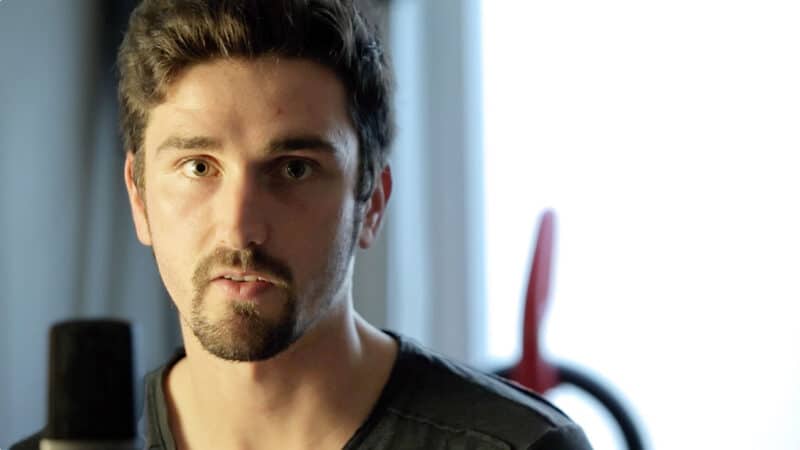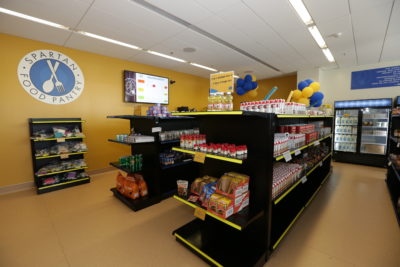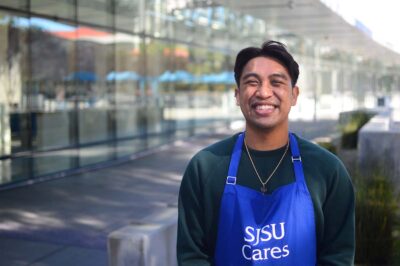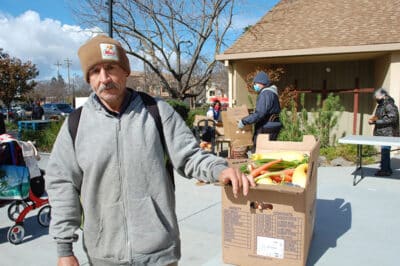Matt Sciamanna remembers the day he got the call well. He was 20 and a sophomore in college at San Jose State University studying nutrition science. His mom phoned to let him know that she loved him and was hoping he might be able to assist more with his living expenses. Matt immediately got a job and for the next year and a half, he worked 38 hours a week while going to school full-time and volunteering. But when his health started to decline and his grueling schedule became too much, he had to switch to a less intensive job that paid far less.
His reduced income didn’t stretch to afford enough food. He was food insecure: skipping meals, relying on a limited diet, napping when he was hungry. Not wanting to add to the stress of his parents’ situation, Matt did his best to hide the truth and always told his mom he was doing ok. But it was hard – “no one wants to lie to their mom,” he said.
When budgets are tight, food is often the first thing to be cut. “What ends up happening is, you have to decide: ‘Well, I have this part-time job and I need gas to go to my part-time job; do I go to the grocery store and buy $40 worth of groceries, or do I pay $40 and put gas in my car?'”
Matt was working as a lead for the SJSU Peer Health Education team and the Student Hunger Committee when he realized he was struggling with food himself and could benefit from the assistance he was educating other students about. “I realized, ‘this is me.’ It was a learning moment for me – it kind of humbled me.”
And for many college students, the struggle of food insecurity goes beyond food. Matt says, “when you go to college, you feel like you’re stepping into a different league. You’re training to become the next generation of leaders. You’re in training to become a professional. While you’re going through college, you feel like you should be moving in that direction. But when you’re food insecure, you have this image in your head of where you should be, but you feel like you’re not there. It’s like there’s two pathways and you can’t quite get them to connect. You feel like you’re letting your family down.”
Discovering that he had a dependable source of free food from Second Harvest of Silicon Valley through the SJSU Spartan Food Pantry provided relief. “It’s relief from the anxiety of literally not being able to create a meal for yourself that’s substantial.”
And it made phone calls with his mom a bit easier. “It was a happy moment when I was able to be truthful in saying I truly was ok and that I was going to be fine.” Being able to rely on free food support meant Matt could focus on school and earn his degree in nutritional science.
Five years later, Matt is the director of food and nutrition services at Washington Hospital in Fremont. His team helps serve meals to between 400 and 600 patients each day, ensuring they get the nutrients they need to recover and stay well. Matt says he has used his experience as a student “in every job I’ve had.”
And he knows that the incredible amount of work he put into classes, volunteering and jobs in school got him where he is today. “When we go to college we’re not just thinking about getting the degree – just getting the degree doesn’t set you up to get a role – you have to do a significant amount of volunteering or working to set yourself apart when you [graduate and] go to get a job. It’s not just going to school. The food allows students to do all the things they need to do to move into the role society expects. It’s so foundational.”
Matt is passionate about making sure everyone in our community has enough to eat – he knows the importance of receiving a helping hand to get through tough times.
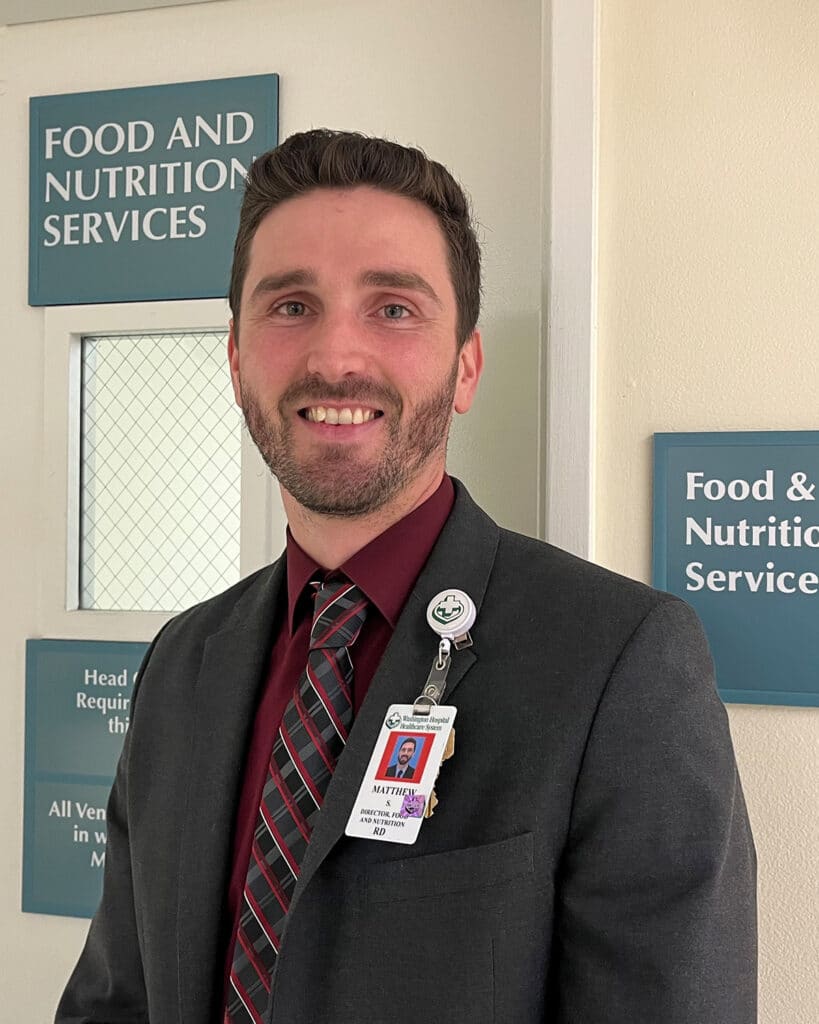
“In the Bay Area, it’s a huge problem that we face,” he says. “The only way we’re going to be able to overcome that is if we come together as a community. To [have] a problem as foundational as lack of access to food really is something that should ignite us all to want to work together to address and solve that problem.”
Matt Sciamanna
